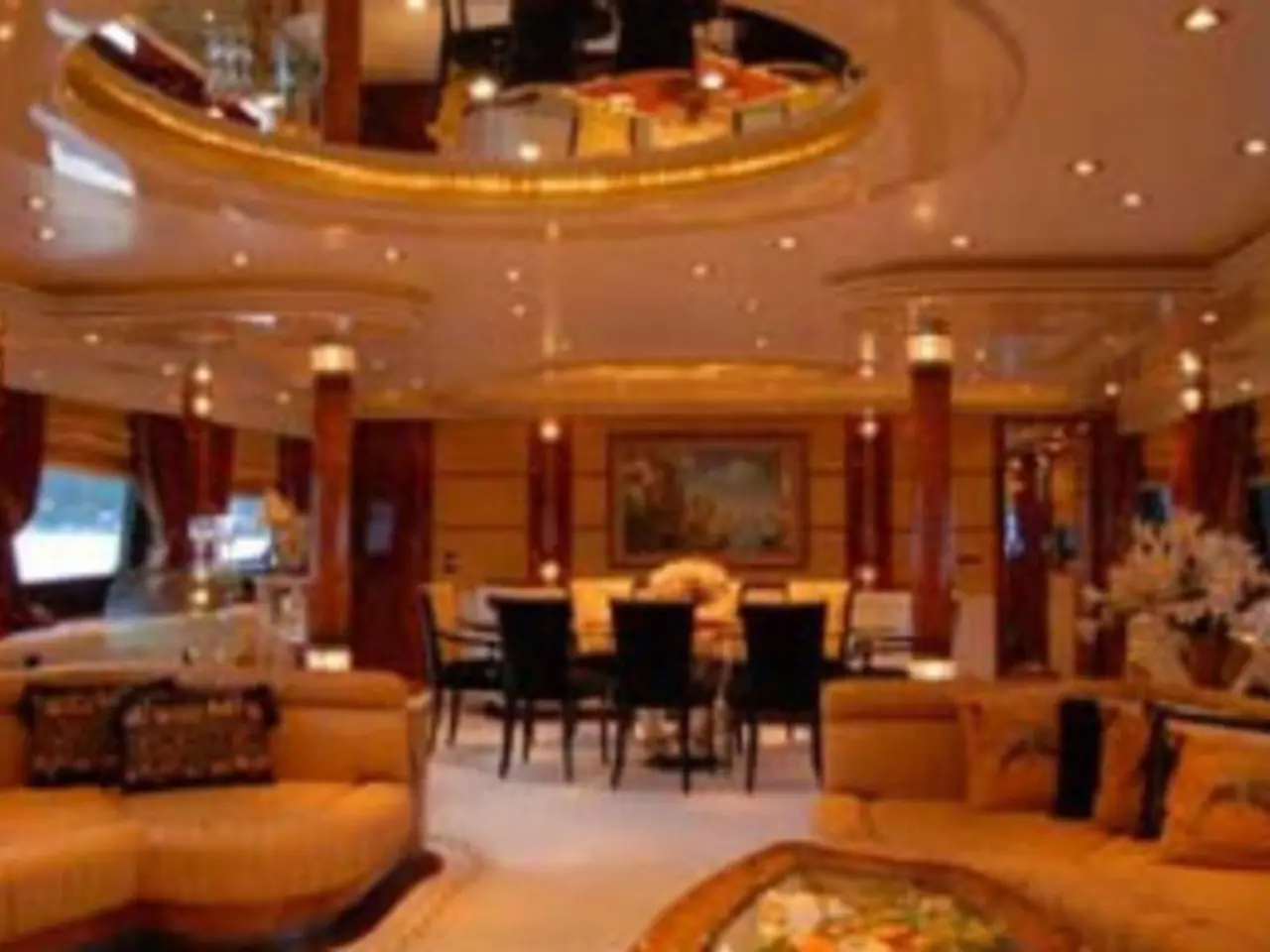Exploring Indoor Activities: Promoting Dubai's Summer Entertaining Spots for Tourists
In the heart of the desert, Dubai has transformed its summer months from a season to avoid into a time of thriving tourism. With daytime temperatures often exceeding 45°C, the city has found a unique solution to attract visitors indoors.
Dubai's strategy involves promoting itself as a leader in indoor entertainment, leveraging its extensive infrastructure of shopping malls, museums, and themed experiences. The city offers a wide range of climate-controlled attractions and experiences, such as Ski Dubai, IMG Worlds of Adventure, Dubai Aquarium & Underwater Zoo, Dubai Parks and Resorts, Dubai Opera, KidZania, and OliOli. These venues provide unique and cool environments for visitors to escape the heat.
The city's integrated entertainment complexes, like Dubai Parks and Resorts, offer a comprehensive entertainment experience for all ages. Cultural and performance venues, such as the Dubai Opera, provide a sophisticated form of entertainment, while educational and interactive venues cater to families.
In 2025, Dubai continues to lead in redefining summer tourism by turning shopping malls, entertainment complexes, museums, and themed experiences into full-fledged tourism destinations. The upcoming Meydan One Mall and other mega-projects promise larger, more diverse indoor venues that combine retail, wellness, sports, and entertainment under one roof.
Dubai's approach to summer tourism caters to the new mindset of climate-conscious travel, offering entertainment, learning, and lifestyle under one roof. The city is running campaigns like the Dubai Destinations summer campaign, which highlights the city's indoor offerings as a refreshing escape from the heat. This campaign emphasizes family-friendly activities and year-round entertainment options.
Effective marketing strategies for 2025 include targeted marketing campaigns, emphasis on climate-conscious travel, innovation and diversification, utilization of technology and immersive experiences, collaboration and infrastructure support, influencer-driven campaigns, family-centric packages and loyalty programs, and gamification inside malls.
Expo City Dubai, originally the site of Expo 2020, is evolving into a permanent hub for year-round indoor attractions, heavily marketed during the summer. Attractions in Dubai are leaning further into multi-sensory storytelling, incorporating projection mapping, scent-driven environments, and AI-guided narratives that adapt in real time to user input.
Emirates Airlines and Visit Dubai have rolled out a 2025 summer initiative called "Stay Cool Dubai," offering discounted attraction tickets upon flight booking confirmation. The Mall of the Emirates launched a city-wide indoor treasure hunt app in 2025, encouraging users to visit specific installations, scan QR codes, and win exclusive prizes.
Marketing materials in Dubai are now created in multiple languages, with cultural nuances in mind, to cater to the diversity of summer tourists. GCC families prioritize family-friendly environments, shopping, and indoor amusement parks when choosing Dubai as their summer escape.
However, marketing indoor attractions during summer poses challenges such as seasonal saturation, audience fatigue, tourist demographics, balancing local and international appeal, and digital competition. Resident families and expats seek engaging experiences during school holidays, making them key targets for membership programs, flash deals, and gamified events.
Despite these challenges, Dubai manages to attract millions of visitors during the summer by offering indoor attractions as an alternative to outdoor explorations. Indoor spaces in Dubai may integrate meditation pods, spa-tech rooms, or sound baths as core summer offerings, in response to rising global interest in mental health and well-being.
European and Russian tourists are attracted to Dubai's premium indoor offerings like luxury dining, art exhibits, wellness spas, and exclusive events. Indian and South Asian tourists are drawn to Dubai for shopping festivals, budget travel deals, and family activities.
Sustainability, accessibility, and urban integration will guide how future attractions in Dubai are designed and marketed, aligning with Dubai 2040 Vision. Dubai's approach to summer tourism is a testament to its innovative spirit and commitment to providing unforgettable experiences for its visitors.
- Dubai's extensive indoor entertainment options include Ski Dubai, the Dubai Aquarium & Underwater Zoo, and KidZania, providing unique and cool environments for visitors to escape the heat.
- In 2025, Dubai continues to lead in redefining summer tourism, turning shopping malls, entertainment complexes, museums, and themed experiences into full-fledged tourism destinations.
- The city's marketing strategies for 2025 include targeted marketing campaigns, utilization of technology and immersive experiences, and family-centric packages and loyalty programs.
- Expo City Dubai, originally the site of Expo 2020, is evolving into a permanent hub for year-round indoor attractions, heavily marketed during the summer.
- European and Russian tourists are attracted to Dubai's premium indoor offerings like luxury dining, art exhibits, wellness spas, and exclusive events.
- Indoor spaces in Dubai may integrate meditation pods, spa-tech rooms, or sound baths as core summer offerings, in response to rising global interest in mental health and well-being.
- GCC families prioritize family-friendly environments, shopping, and indoor amusement parks when choosing Dubai as their summer escape.
- Dubai's approach to summer tourism aligns with Dubai 2040 Vision, with sustainability, accessibility, and urban integration guiding the design and marketing of future attractions.
- Dubai's tourism strategy involves promoting itself as a leader in indoor entertainment and sustainability, with a focus on cultural, educational, and lifestyle experiences for visitors.




